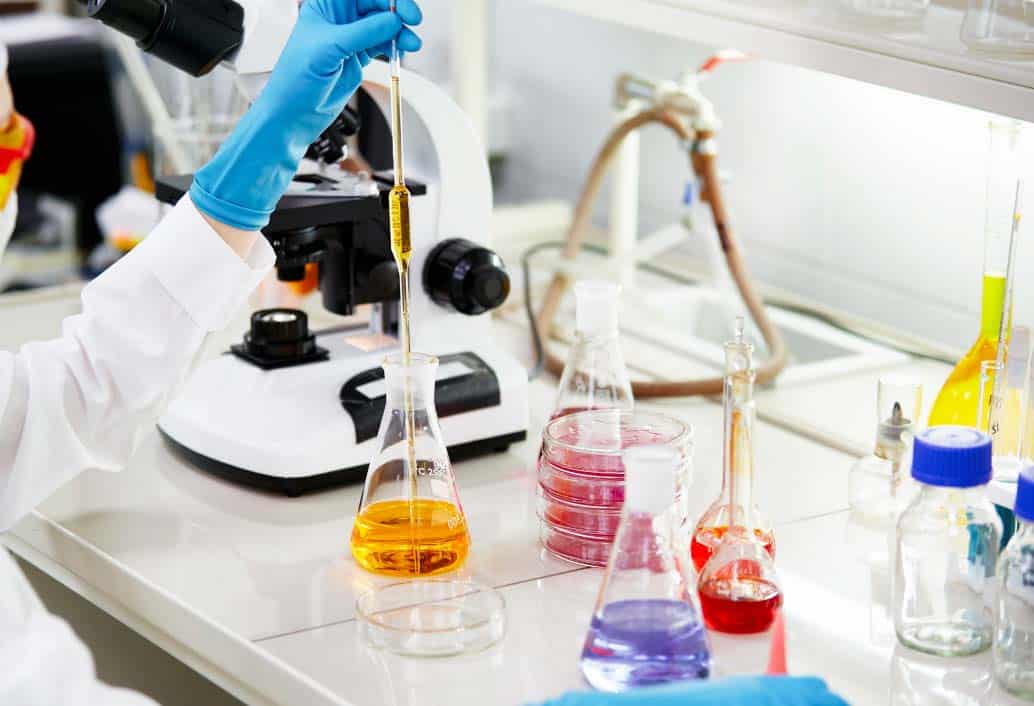Biologics Drug Development Solutions
Biologics or Biopharmaceuticals are a group of therapeutic agents manufactured from biological sources and without a single defined chemical structure or composition. Biologics may be isolated from various biological sources, such as human, animal, microorganism, and/or may be produced by modern biotechnology methods.
Biologics can be composed of proteins, nucleic acids, sugars, or complex combinations of these components, as well as include cell-based therapies, vaccines, and gene therapies.
In the past 10 years, Biopharmaceuticals have dominated new drug applications (NDAs) as compared to traditional small molecule-based drugs.
Our Solutions
Emery Pharma has the required expertise and facilities to routinely characterize a wide variety of structural and chemical qualities in biologic compounds. We offer an extensive array of biologics characterization services, including de novo method development and validation.
Intact mass is the assessment of a protein’s molecular weight without digesting the compound into smaller subunits. Intact mass analysis provides insight into post-translational modifications, structural arrangement, stability, and overall protein structure. Subunit/Fragment analyses involves reduction of inter-chain disulfide bonds, by using enzymes to cleave a specific bond in the hinge region of a mAb, by enzymatically releasing the N-glycosylation, or any combination of these.
Peptide mapping is the digest of a protein by an enzyme, typically trypsin, into several smaller peptides which are then separated by chromatography and analyzed by either a mass spectrometer (LC-MS) or UV (LC-UV) detector. Additional proteolytic enzymes (e.g., Lys-C, Glu-C, chymotrypsin) may be considered to achieve full sequence coverage during peptide mapping studies.
N-Glycosylation is a co-translational process that widely occurs during the expression of biologic compounds in mammalian and eukaryotic cells, but rarely in bacterial cells. A variety of different oligosaccharides (glycans) are bound to the biologic molecule, and this is called the glycan profile.
Host cell proteins (HCPs) are protein impurities found in the biopharmaceutical product, which are produced by the cell lines used to express the biologic drug. HCPs are characteristic of the expression system and are normally present in minor/residual amounts in the final product. HCPs in any biologic drug product need to be closely monitored as they may cause immunogenicity in individuals, reduce the potency, stability, or overall effectiveness of the biologic.
The final structure, function, and immunogenicity of a protein-based Biologic drug (mAbs, ADCs, etc.) are determined by posttranslational modifications (PTMs) and any associated misincorporations introduced in the recombination production system. In-depth LC-MS, HRMS, and MS/MS analyses are required to supplement a standard peptide mapping workflow to identify these structural variants.
Size Exclusion Chromatography (SEC) and Ion Exchange Chromatography (IEX) are specialized HPLC techniques that are workhorse methods in the analysis of biologic compounds used for release and stability testing. Emery Pharma has expertise and equipment to provide analyses and interpretations of all aspects of these methods.
Bioanalysis is a specialized branch of analytical chemistry that aims to quantify the concentration of a drug/biopharmaceutical, metabolite, or biomarker in a biological matrix such as blood, serum, plasma, urine, or tissue samples. Additionally, for large biomolecules, bioanalytical assays are frequently performed to evaluate the immunogenicity of the drug.
We are experienced in leading bioanalytical projects across ligand binding assays (e.g., ELISA), LC-MS/MS, LC-HRMS, through discovery R&D, preclinical, and clinical phases.
Activity and Immunogenicity Assays
Immunogenicity assessment is critical for any Biopharmaceutical discovery and development program. Biologics, owing to their nature, has the potential to induce severe immune response in the host and must be evaluated at every stage of development. The two main arms of immunogenicity assessment for biologics include anti-drug antibody (ADA) and neutralizing antibody (NAb) assays.
Emery Pharma offers ADA and NAb assays based on ELISA platform across the entire biologic discovery pipeline starting from early discovery to clinical evaluation.
Drug-to-antibody Ratio (DAR) for ADCs
Drug-to-antibody ratio (DAR) is the average number of drugs conjugated to an antibody molecule for an Antibody drug conjugate (ADC). DARs, evaluated using high resolution LC-MS assays, represent a key metric for efficacy and safety of the ADC. Generally, the intact ADCs are analyzed via LC-MS for DAR determination, however, reduced or deglycosylated ADCs may be used for LC-MS under special scenarios.
Challenges with Biologics Characterization
The challenges of biologics characterization are related to the complexity and size of their molecular structure(s). The exact characterization depends on the nature of the biologic and involve:
- The identity is determined through liquid chromatography – mass spectrometry (LC-MS) analysis of both the intact molecule and a proteolytic digest.
- The purity of the drug substance/product can be assessed with respect to the extent of aggregation via Size Exclusion Chromatography (SEC). Whereas the purity with respect to charge variants is determined through Ion Exchange Chromatography (IEX).
- Additional characterization includes amino acid sequence and modifications including glycosylation, misincorporations, and post-translational modifications (PTMs) via high resolution mass spectrometry (HRMS).
- For ADCs, additional analyses around drug-to-antibody ratio (DAR) are required.
At Emery Pharma, Biologics characterization is performed state-of-the-art instrumentation such as ultraperformance liquid chromatography (UPLC), high-field Orbitrap mass spectrometer (m/z up to 8000), Plate readers (ligand-binding assays), etc.
